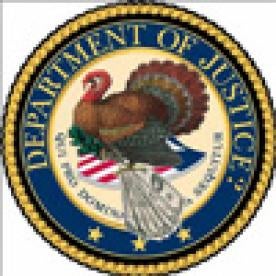On March 7, 2019, the DOJ (Department of Justice) announced the largest coordinated sweep of elder fraud cases to date. Joined by the FBI and other federal and state partners, the DOJ held a press conference detailing the results of the coordinated effort. Coordinated law enforcement actions in the past year, they said, resulted in criminal cases against more than 260 defendants who victimized more than 2 million Americans, most of them elderly. In each case, the offenders allegedly engaged in financial schemes that targeted or largely affected seniors. Losses are estimated to have exceeded more than $750 million. The DOJ released an interactive list of the elder fraud cases.
The sweep was primarily focused on the threat posed by technical-support fraud, an increasingly common form of elder fraud in which criminals trick victims into giving remote access to their computers under the guise of providing technical support. The DOJ partnered with the FBI, U.S. Postal Inspection Service, the Department of Homeland Security, state Attorneys General and the U.K.’s City of London Police to investigate and prosecute perpetrators of technical-support fraud.
Since many of those prosecuted as a part of the elder fraud sweep cases – including technical-support fraud and mass mailing elder fraud cases – allegedly involved transnational criminal organizations, the DOJ and Postal Inspection Service worked with numerous countries to secure evidence and extradite defendants. The sweep also took comprehensive action against the money mule network that facilitates foreign-based elder fraud. The DOJ defines a money mule as “someone who transfers money acquired illegally in person, through the mails, or electronically, on behalf of others.” With assistance from the Secret Service and Homeland Security, the FBI and Postal Inspection Service took action against over 600 alleged money mules. Additionally, the sweep benefited from assistance from foreign law enforcement partners.
The sweep also had a public education campaign focused on technical-support fraud. The DOJ coordinated with the FTC (Federal Trade Commission) and State Attorneys General in designing and disseminating messaging material intended to warn consumers and businesses. Public education outreach is being conducted by various state and federal agencies, to educate seniors and prevent further victimization.
The coordinated effort reflects the increasing focus of federal and state regulators on elder financial abuse. In February, the CFPB’s (Consumer Financial Protection Bureau) Office of Financial Protection for Older Americans issued a report providing guidance to financial institutions on combating elder abuse. As we have previously observed, elder financial abuse prevention can be viewed as falling within a financial institution’s general obligation to limit unauthorized use of customer accounts as well as its general privacy and data security responsibilities. Thus, a financial institution that fails to proactively implement an elder financial abuse prevention program risks regulatory investigation. Additionally, a depository institution subject to CFPB supervision should expect CFPB examiners to look at its program for preventing elder financial abuse. Further, many states have laws that address elder financial abuse, in some instances requiring mandatory reporting, without providing protection to the bank, while in others including providing immunity for banks who implement transaction holds when staff members observe financial exploitation.



 i
i


